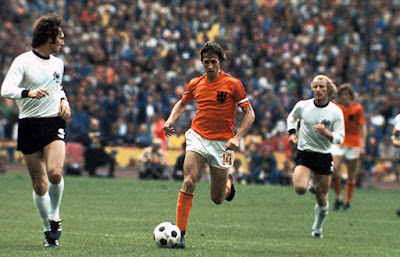Most Influential Figures in Football History
There is no doubt that football is the most popular sport in
the world, with over 3.5 billion fans. It's also one of the most popular sports
featured in both old and new sports bookies.
Football has produced many legends who have left an indelible
mark. These individuals have not only showcased exceptional skills on the pitch
but have also captured the hearts of millions of fans around the world.
That said, it's undeniable that some footballers have been
more successful than others. From the dribbling legend Pele to the successful
careers of Lionel Messi and Cristiano Ronaldo, this write-up discusses the
most influential footballers of their time and throughout sports history.
1.
Pele
Born Edson Arantes do Nascimento and nicknamed the King of
Football, Pele is undoubtedly one of the greatest football players ever.
Hailing from Brazil, Pele's achievements are nothing short of astounding.
He clinched three FIFA World Cup titles (1958, 1962, and
1970), a feat no one else has replicated. Pele's unique blend of speed,
finesse, and goal-scoring prowess set him apart. He scored a whopping 1,281
goals in 1,363 official games, an astonishing record that still stands as a
testament to his greatness.
He was voted the World Player of the Century by the
International Federation of Football History and Statistics in 2000 and FIFA
Player of the Century.
Even after successful football career, Pele did not slow down
after retiring. He became Brazil's sports minister between 1995 and 1998 and a
football ambassador.
2. Johan Cruyff
Johan Cruyff was a Dutch football genius who revolutionized
the game with his philosophy of "Total Football." This approach
emphasized fluidity, interchangeability, and skilful play, making him one of
the most influential figures in football history.
Moreover, his dribbling ability and visionary passing made
him a formidable force. Johan led the Netherlands to the 1974 World Cup final
and inspired FC Barcelona's golden era as both a player and
later a coach.
He also won the Ballon d'Or thrice in 1971, 1973, and 1974.
His impact goes beyond his playing days, influencing generations of players and
coaches to adopt this attractive and attacking style of play.
3. Diego Maradona
Despite his controversial personal life, Diego Maradona is a
football legend that influenced not only his generation but the generations
that came after. He was an Argentine football icon known for his awe-inspiring
dribbling and creativity.
His infamous "Hand of God" goal in the 1986 World Cup
showcased his audacity, but his "Goal of the Century" against England
in the same tournament truly reflects his brilliance. Maradona's dribbling
through the entire England team is truly etched in football history. His
personality and on-field exploits earned him a place in the hearts of fans worldwide.
4. Lionel Messi
Lionel Messi is an exceptional player; his performance in the
2
022 world cup reflected that. He led Argentina to win the world cup 2022 and picked the Golden Ball for
the second time.
Messi is celebrated for his unmatched dribbling skills, close
ball control, and precise finishing. He spent most of his career at Barcelona,
and as of June 2023, Messi had won 43 trophies, including multiple Ballon d'Or
titles.
In addition to being an incredible scorer, Messi is also an
exceptional leader. His teammates praise him for making them better players.
Moreover, his ability to dribble past multiple defenders and
his knack for scoring from improbable angles make him a true phenomenon.
5. Cristiano Ronaldo
We cannot end this list without mentioning the powerhouse
forward Cristiano Ronaldo, who is synonymous with athleticism and goal-scoring
prowess. He has won 35 trophies and scored the most goals in the history of
men's football.
Ronaldo's rivalry with
Messi for the title
of the world's best player has spurred both to achieve unprecedented heights.
The player now playing for Al Nassr in Saudi Arabia has set
standards for what football should be, and we can only expect more from him in
the future.
Conclusion
While there are plenty more players we can add to this list,
these influential figures have left an indelible impact on football history
through their extraordinary skills, unique playing styles, and trailblazing
contributions. Their legacy inspires generations of players, shaping how the
game is played and enjoyed worldwide.
The first three are now late. We can expect more
extraordinary moments from Messi and Ronaldo in the next couple of years.








Comments
1. Pele
2. Cruyff
3. Marta ( female)
4. Still thinking